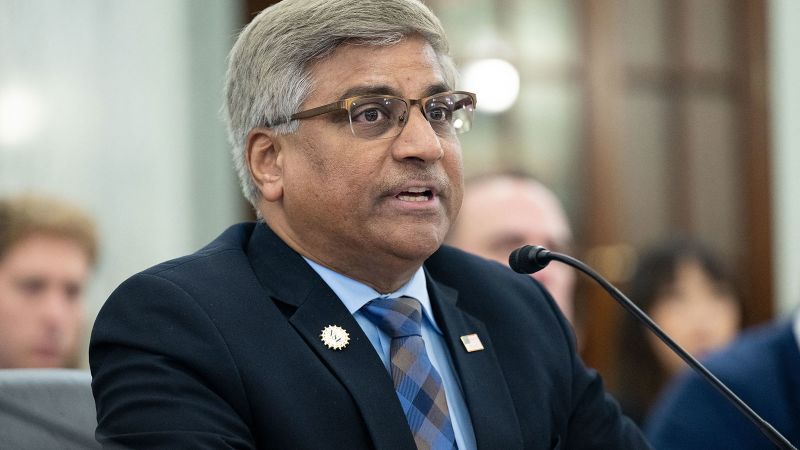On Thursday, the head of the U.S. National Science Foundation (NSF), an influential agency with a significant budget of $9 billion dedicated to fostering scientific discovery, announced resignation amidst substantial changes pushed by the current Trump administration. This event marks a significant transition in the leadership of an agency renowned for its pivotal role in advancing research across various scientific fields.
Sethuraman Panchanathan, who has been at the helm of the NSF since his appointment by then-President Donald Trump and subsequent unanimous confirmation by the Senate in June 2020, expressed his belief that it was time for new leadership to take the agency forward. In remarks provided to CNN, Panchanathan stated, “I believe I have done all I can to advance the critical mission of the agency and feel that it is time for me to pass the baton to new leadership.” His departure is noteworthy as it coincides with the NSF facing mounting pressures from the new administration, as well as the newly formed Department of Government Efficiency (DOGE). This department was established with the intent to significantly reduce governmental spending across various agencies.
Panchanathan emphasized the strategic importance of the NSF in maintaining America’s global competitiveness in the scientific domain. “This is a pivotal moment for our nation in terms of global competitiveness,” he stated. He maintained that the NSF’s work is crucial for preserving the United States’ scientific dominance, stating, “We must not lose our competitive edge.” Concerns regarding the agency’s funding came to a head earlier this month when it was announced that the NSF would be canceling hundreds of grants, equating to more than $230 million. These cancellations primarily affected research areas related to diversity, equity, inclusion (DEI), and misinformation/disinformation.
The administration has issued a series of executive orders that direct federal agencies to cease any activities related to DEI initiatives. Several canceled grants had titles that explicitly referenced such programs, including “Racial Equity in STEM” and “Advancing Gender Equity in Computing,” sparking a backlash from advocacy groups and research organizations alike. Furthermore, the cancellations extended beyond DEI-focused research to encompass projects associated with misinformation, such as “Addressing Vaccine Information Integrity,” indicating a wider scope of the executive order’s implications.
In a statement regarding the halted funding, the NSF indicated compliance with the directive from President Trump’s January 20 executive order on “restoring freedom of speech.” According to the agency, they would not support research aimed at combating misinformation, as it could infringe on the constitutional rights of American citizens by promoting a singular narrative on public discourse topics. This shift in funding policy has raised concerns about the potential stifling of critical research aimed at addressing misinformation and other related fields.
As these changes have begun to take shape, significant backlash from the research community has emerged. In light of the executive orders and shifts within NSF’s operational strategies, researchers have been prompted to ensure that their funding applications align with the fluctuating directives imposed by the administration. This evolving landscape has been characterized by a “political tug-of-war,” resulting in wasted resources and time for scientists, as articulated by the Federation of Associations in Behavioral & Brain Sciences in April.
Furthermore, impending employment reductions at the NSF may echo the DOGE’s broader demand for workforce cuts across multiple federal agencies. Established in 1950, the NSF is tasked with evaluating the scientific merit of grant applications while providing crucial financial support to universities and research institutions engaged in a wide range of scientific inquiries, covering topics from artificial intelligence to fundamental cosmological questions. The current trajectory of the agency raises critical concerns about its future capabilities and the preservation of its foundational mission in the face of significant political and financial pressures.












